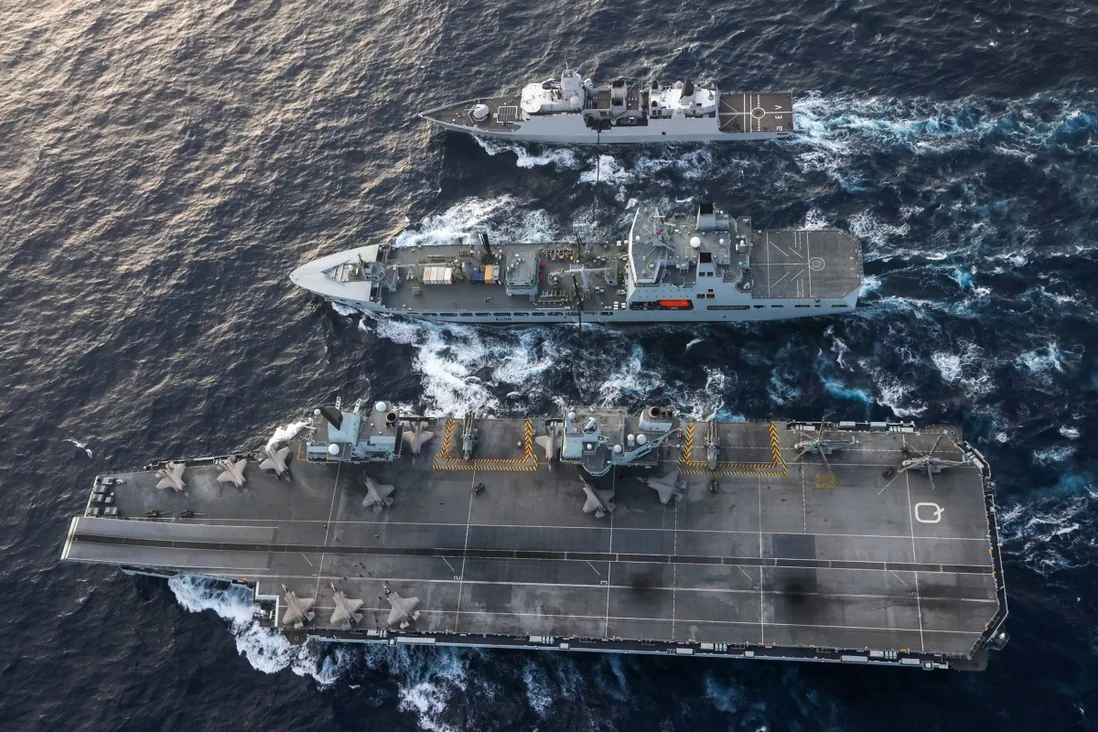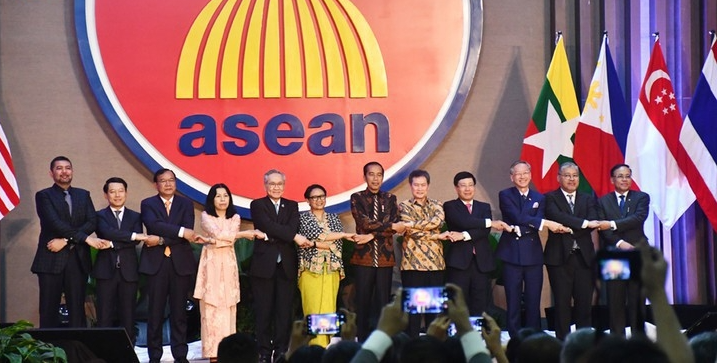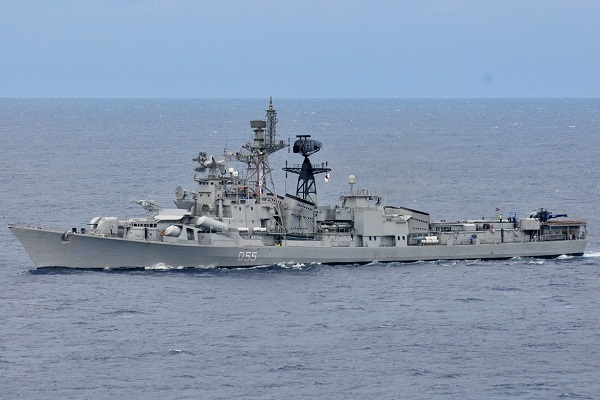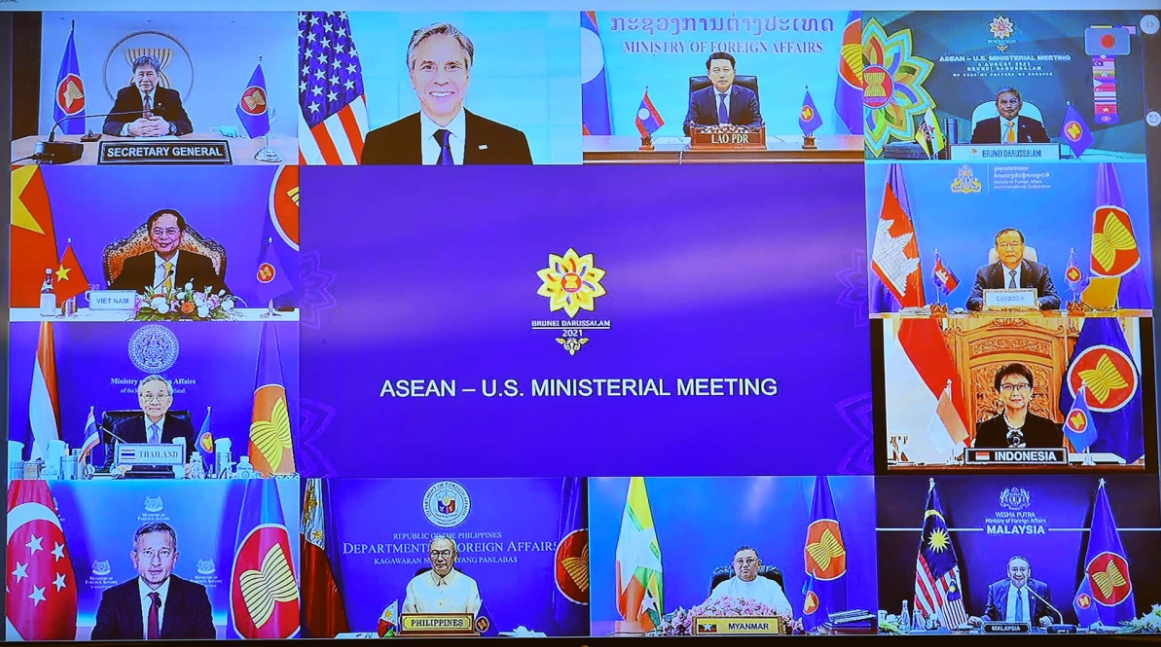US Vice Admiral: China’s New Maritime Requirements Build Foundations for Instability
 |
| The US Coast Guard's top commander in the Pacific, Vice Adm. Michael McAllister. Photo: US Coast Guard |
China’s new reporting requirements for ships on innocent passage to the South China Sea (Bien Dong Sea) seems to run directly counter to international agreements and norms, the US Coast Guard's top commander in the Pacific, Vice Adm. Michael McAllister said.
“If our reading is correct, these are very concerning, and that’s because they begin to build foundations for instability and potential conflicts if those are enforced,” he told a telephone press briefing on September 3 when asked about China’s new maritime law.
Beijing wants foreign vessels to give notice before entering "Chinese territorial waters," providing maritime authorities with detailed information -- including the ship's name, call sign, current position, next port of call and estimated time of arrival.
It may sound like a reasonable enough request, especially if the ship is carrying hazardous goods, that is until you consider what constitutes "Chinese territorial waters," CNN said.
As of September 1, five types of foreign vessels -- submersibles, nuclear-powered vessels, ships carrying radioactive materials, ships carrying bulk oil, chemicals, liquefied gas or other toxic substances, as well the seemingly catch all "vessels that may endanger China's maritime traffic safety" -- will be required by law to provide detailed information to state authorities on entering "Chinese territorial waters," according to a notice released by China's maritime safety authorities.
The new regulations are the second such instance of Beijing attempting to provide a legal justification for its maritime reach this year, following a law introduced in February that allows the Chinese Coast Guard to use weapons to protect China's national sovereignty, an action previously reserved for units of the People's Liberation Army.
The main focus of both of China's new legal claims is widely considered to be the South China Sea, almost all of which Beijing claims as its sovereign territory.
Regarding the Coast Guard’s reaction, McAllister said the force is in the region really in part to support key partners that are growing increasingly concerned over China’s aggressive and sometimes coercive actions.
“Serious threat” to freedom of navigation and trade
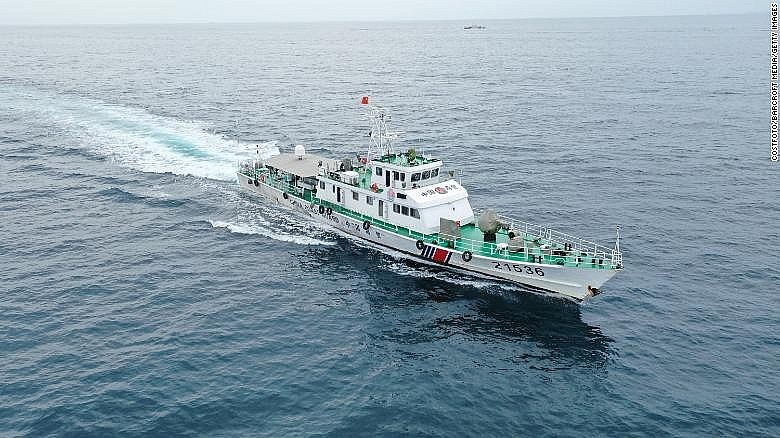 |
| A Chinese Coast Guard taskforce advances at full speed in Zhanjiang, Guangdong Province in China on August 13. Photo: CNN |
South China Morning Post reported on September 2 that the Pentagon appeared to dismiss Beijing’s new demand that all foreign ships entering the South China Sea must register with Chinese maritime authorities, calling it a “serious threat” to freedom of navigation and trade.
“The United States remains firm that any coastal state law or regulation must not infringe upon navigation and overflight rights enjoyed by all nations under international law,” it cited John Supple, a Pentagon spokesman.
“Unlawful and sweeping maritime claims, including in the South China Sea, pose a serious threat to the freedom of the seas, including the freedoms of navigation and overflight, free trade and unimpeded lawful commerce, and the rights and interests of South China Sea and other littoral nations,” he said.
“The United States remains committed to upholding the rules-based international order and a free and open Indo-Pacific region,” said Supple, the Pentagon spokesman.
China’s new rule was supposed to take effect on September 1, according to the country’s Maritime Safety Administration. The Chinese government has not clarified how it will be enforced.
State Department spokesman Ned Price declined to say whether the Chinese government had communicated directly with the US about the edict. But he said the US had already made its position clear to Beijing that it viewed the expansive territorial claims as illegal.
“We have not been shy about lodging our protests and, together in many cases with our partners and allies, standing up to unlawful, excessive maritime claims” of China, said Price. “We will continue to do that.”/.
 |
| Spokeswoman of the Vietnamese Ministry of Foreign Affairs Le Thi Thu Hang. Photo: Nhan dan (People) newspaper |
| Responding to reporters’ question about Vietnam's reaction to China's official enforcement of the revised Maritime Traffic Safety Law, spokesperson of the Ministry of Foreign Affairs Le Thi Thu Hang said Vietnam resolutely and persistently takes measures in line with international law to exercise and protect its sovereignty over Hoang Sa (Paracel) and Truong Sa (Spratly) archipelagoes. “Vietnam resolutely and persistently safeguards its sovereignty, sovereign rights and jurisdiction over its waters determined in line with the provisions of the 1982 UN Convention on the Law of the Sea (UNCLOS 1982)”, she was cited by the Vietnam News Agency as saying. She noted that countries need to strictly comply with the international treaties to which they are members, especially the UNCLOS 1982 – a legal framework governing all activities at sea and ocean, when promulgating their domestic sea-related laws. |
Recommended
 Seas and islands
Seas and islands
Vietnam Endorses Common Voice on Ocean Jurisdiction
 Seas and islands
Seas and islands
Dialogue as Key to Settling Disputes and Advancing Law of the Sea
 Seas and islands
Seas and islands
RoK Navy Ship Pays Friendly Visit to Da Nang City
 Seas and islands
Seas and islands
Naval Region 5 Promotes Reading Culture, Fosters Patriotism
Popular article
 Seas and islands
Seas and islands
Coast Guard Region 2 Command Hosts Philippine Coast Counterpart
 Seas and islands
Seas and islands
Vietnam - Thailand Navy: Coordination to Well Address Problems at Sea
 Seas and islands
Seas and islands
Honoring the Fallen: Incense Offering for the 37th Anniversary of Gac Ma
 Seas and islands
Seas and islands


